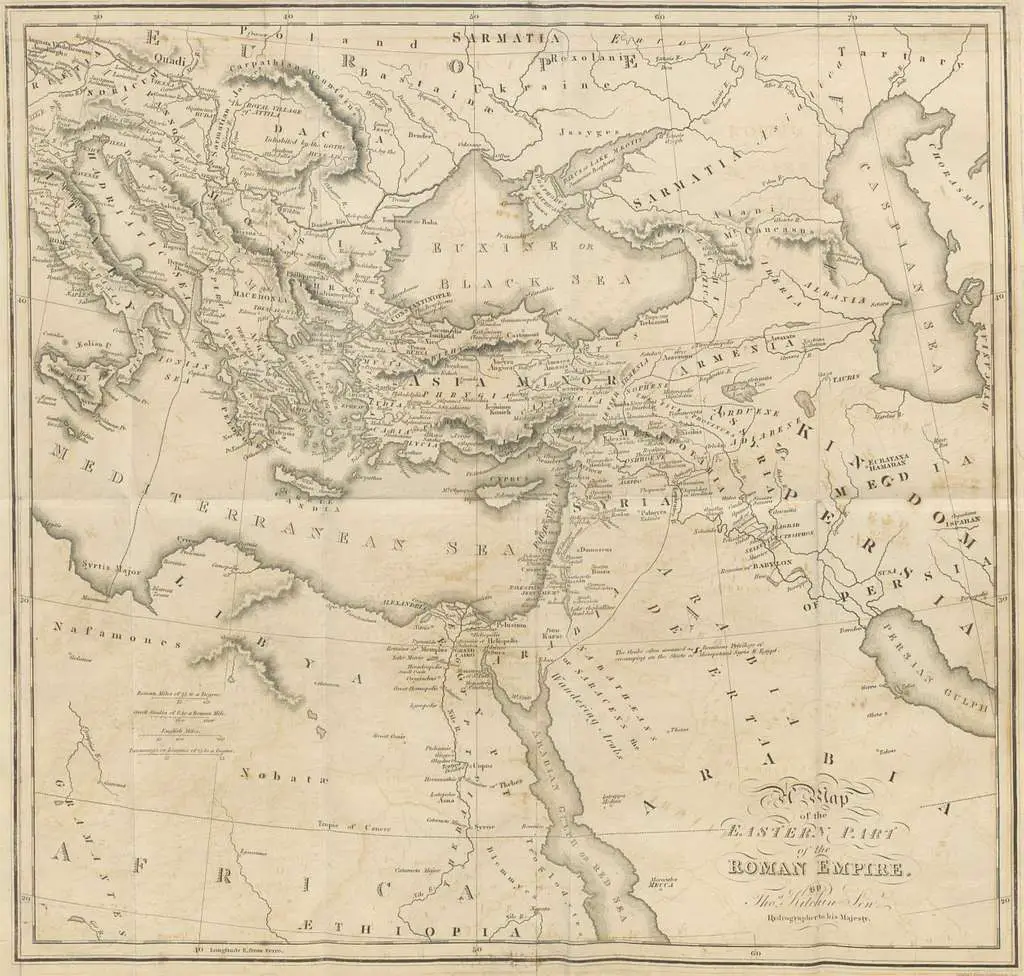Overview
Introduction
In the grand tapestry of history, empires have played a pivotal role in shaping the world as we know it. These vast and powerful entities have risen and fallen throughout the ages, leaving behind a legacy that continues to captivate and intrigue us. Understanding the rise and fall of empires is not only a fascinating study of human civilization, but it also provides valuable insights into the dynamics of power, governance, and the complexities of managing vast territories. By examining the factors that contributed to their rise and the pitfalls that led to their downfall, we can gain a deeper understanding of the challenges faced by empires and the lessons they offer for the present and future.
Definition of Empires
Empires can be defined as large political entities that extend their control over multiple regions and diverse populations. They are characterized by centralized authority, dominance over other states, and economic exploitation of conquered territories. Empires often emerge through military conquests and the establishment of colonies or client states. They exert control through a combination of military force, political manipulation, and cultural assimilation. The rise of empires is closely tied to the consolidation of power and the expansion of territories, while their fall can be attributed to a variety of factors, including overextension, internal conflicts, and external invasions. Studying empires is crucial for understanding the dynamics of power, the complexities of governance, and the impact of imperialism on societies throughout history.
Importance of Studying Empires
Studying empires is of utmost importance as it provides us with valuable insights into the rise and fall of civilizations throughout history. By examining the successes and failures of past empires, we can gain a deeper understanding of the factors that contribute to their rise and the pitfalls that lead to their downfall. Lessons from the fifth Arab-Israeli war highlight the significance of studying empires as they reveal the consequences of overextension and the impact of internal conflicts on the stability of an empire. Furthermore, studying empires allows us to analyze the strategies employed by successful empires in maintaining military strength, economic power, and political stability. By learning from the past, we can apply these lessons to current and future empires, avoiding the same mistakes and paving the way for sustainable growth and prosperity.
Causes of Empire Rise

Military Strength
Military strength is often regarded as one of the primary factors contributing to the rise of empires. A powerful and well-trained army can provide a sense of security and deter potential threats from neighboring regions. Empires with superior military capabilities are able to expand their territories through conquest and establish dominance over other civilizations. They can also enforce their rule and maintain control over their subjects, ensuring compliance and obedience. However, it is important to note that military strength alone is not sufficient to sustain an empire in the long run. Empires must also possess strong economic foundations, political stability, and effective governance to thrive and withstand the challenges they may face. As we examine the rise and fall of empires throughout history, it becomes evident that a differential response to climate change by civilizations can also play a significant role in shaping the fate of empires. The ability to adapt to changing environmental conditions, such as shifts in rainfall patterns or the availability of natural resources, can determine the resilience and sustainability of an empire. Empires that fail to address the impacts of climate change may face resource scarcity, agricultural decline, and social unrest, which can ultimately lead to their downfall. Understanding the complex interplay between military strength, economic power, political stability, and the differential response to climate change by civilizations is crucial in comprehending the dynamics of empire rise and fall.
Economic Power
Economic power is a crucial factor in the rise and fall of empires. Silver has often been a symbol of wealth and prosperity, and empires that controlled silver mines and trade routes were able to accumulate great riches. The abundance of silver allowed these empires to finance their military campaigns, invest in infrastructure, and indulge in luxury goods. The possession of silver revealed the empire’s ability to command resources and exert influence over other nations. Furthermore, the control of silver mines gave empires a significant advantage in international trade, as it allowed them to set the value of currency and manipulate markets. However, the reliance on silver as a source of economic power also had its drawbacks. Empires that heavily relied on silver often neglected other sectors of the economy, leading to imbalances and vulnerabilities. In addition, the discovery of new silver mines by rival empires could disrupt the economic stability of existing empires. Therefore, while economic power through silver was a significant factor in the rise of empires, it was also a double-edged sword that could contribute to their eventual downfall.
Political Stability
Political stability is a crucial factor in the rise and fall of empires. Stable governance enables an empire to effectively manage its resources and maintain control over its territories. It allows for the implementation of long-term policies that promote economic growth and social stability. Moreover, political stability fosters a sense of national unity and loyalty among the empire’s subjects, which strengthens its military power and deters internal rebellions. However, when political stability is compromised, it can have detrimental effects on the empire’s longevity. Internal power struggles and corruption can weaken the empire from within, leading to a loss of public trust and support. Additionally, external powers may exploit the empire’s political instability to incite unrest or launch invasions. In the case of the fall of the Roman Empire, for example, a combination of internal power struggles and external invasions contributed to its demise. It is essential for future empires to recognize the significance of political stability and take measures to ensure a strong and resilient governance system.
Factors Leading to Empire Fall

Overextension
Overextension is a common factor that leads to the fall of empires throughout history. When empires expand their territories too rapidly and without proper consideration of their resources and capabilities, they often find themselves stretched too thin. This can result in economic strain, as the empire struggles to maintain control over vast territories and provide for their populations. Military resources may also be spread thin, making it difficult to defend against external threats or maintain control over rebellious regions. Furthermore, overextension can lead to political instability, as the empire struggles to govern and manage the diverse cultures and populations within its borders. The Roman Empire, for example, is a classic example of overextension, as it expanded to its maximum extent but ultimately collapsed due to the inability to sustain its vast territories. It is crucial for empires to carefully consider their limitations and resources to avoid the pitfalls of overextension.
Internal Conflicts
Internal conflicts within an empire can often be one of the most significant factors leading to its downfall. Power struggles, factionalism, and civil wars can weaken the unity and stability of an empire, making it vulnerable to external threats. These internal conflicts can arise from various sources, such as political disagreements, economic disparities, or social unrest. When different factions within an empire compete for power and resources, it can lead to a breakdown in governance and a loss of control over the empire’s territories. Furthermore, corruption and mismanagement can exacerbate these internal conflicts, further eroding the empire’s strength and legitimacy. It is essential for empires to address and resolve internal conflicts promptly to maintain their stability and prevent their eventual decline and collapse.
External Invasions
External invasions have historically played a significant role in the fall of empires. These invasions often occur when neighboring nations or rival powers see an opportunity to exploit the weaknesses of an empire. Oct. 30-Nov. 6 was a period marked by numerous external invasions that had devastating consequences for many empires throughout history. One example is the invasion of the Roman Empire by the Visigoths in 410 CE, which led to the sack of Rome and the decline of Roman power. Another example is the Mongol invasions of the 13th century, which resulted in the destruction of the Khwarazmian Empire and the weakening of other empires in the region. These external invasions often exploit internal conflicts and divisions within empires, further exacerbating their downfall. It is important for future empires to learn from these historical examples and take measures to protect themselves from external threats.
Conclusion

Lessons Learned
Throughout history, the rise and fall of empires have provided valuable lessons for future generations. One of the key lessons learned is the impact of environmental disasters and societal collapse on the stability and longevity of empires. As empires expand their territories and exploit natural resources, they often neglect the long-term consequences of their actions. This can lead to environmental degradation, resource depletion, and ultimately, societal collapse. For example, the ancient Mayan civilization in Central America experienced a decline due to environmental factors such as deforestation and soil erosion, which led to a collapse in agricultural productivity and social unrest. Similarly, the Roman Empire faced challenges from overexploitation of natural resources and the impact of climate change, which contributed to its eventual downfall. These historical examples serve as a stark reminder of the importance of sustainable practices and the need to address environmental issues to prevent the decline of future empires.
Relevance in Modern Times
The relevance of studying the rise and fall of empires extends beyond historical curiosity. It provides valuable insights into the dynamics of power, governance, and human nature that are still applicable in modern times. By examining the successes and failures of past empires, we can identify patterns and trends that can inform our understanding of contemporary geopolitical dynamics. Significant rulers in African history have often faced similar challenges as those encountered by empires of the past, such as the delicate balance between centralization and regional autonomy, the management of diverse ethnic and cultural groups, and the quest for economic prosperity. Understanding the strategies employed by these rulers and the outcomes they achieved can offer valuable lessons for leaders and policymakers today. Furthermore, studying the rise and fall of empires can shed light on the potential consequences of unchecked power, the dangers of overextension, and the importance of maintaining internal stability and external alliances. In an era of globalization and shifting power dynamics, the lessons learned from past empires can help guide the decisions and actions of nations as they navigate the complexities of the modern world.
Implications for Future Empires
As we examine the rise and fall of empires throughout history, we gain valuable insights into the factors that contribute to their success or demise. These lessons have significant implications for future empires, as they provide a roadmap for navigating the complex challenges that come with wielding power on a global scale. One key lesson is the importance of maintaining a delicate balance between military strength, economic power, and political stability. Offering a comprehensive analysis of these three pillars can help future empires avoid the pitfalls that have led to the downfall of their predecessors. Additionally, the study of past empires allows us to identify patterns of overextension, internal conflicts, and external invasions that have historically weakened empires. By recognizing these patterns, future empires can take proactive measures to prevent similar vulnerabilities. The offer of this knowledge is invaluable, as it equips future empires with the tools to navigate the complexities of power dynamics and maintain longevity.
Avid Writer with invaluable knowledge of Humanity!
Upcoming historian with over 30 million views online.
“You make your own life.”





